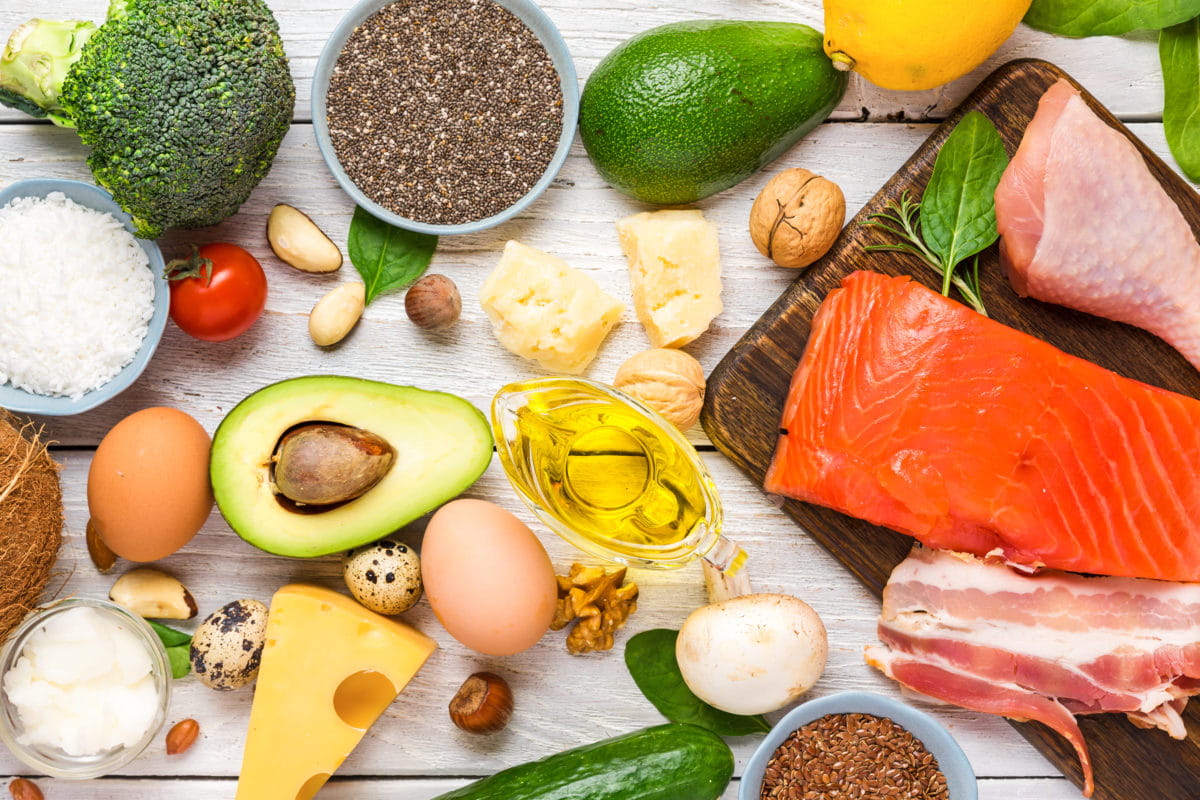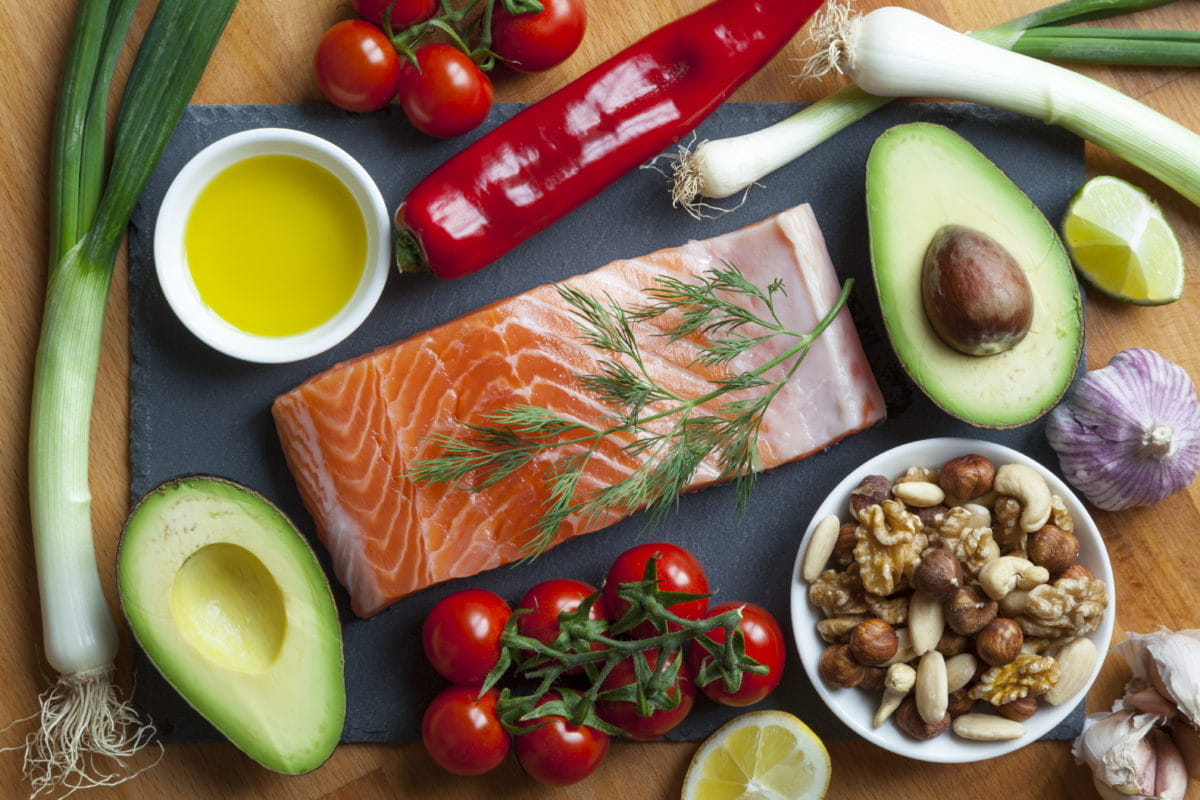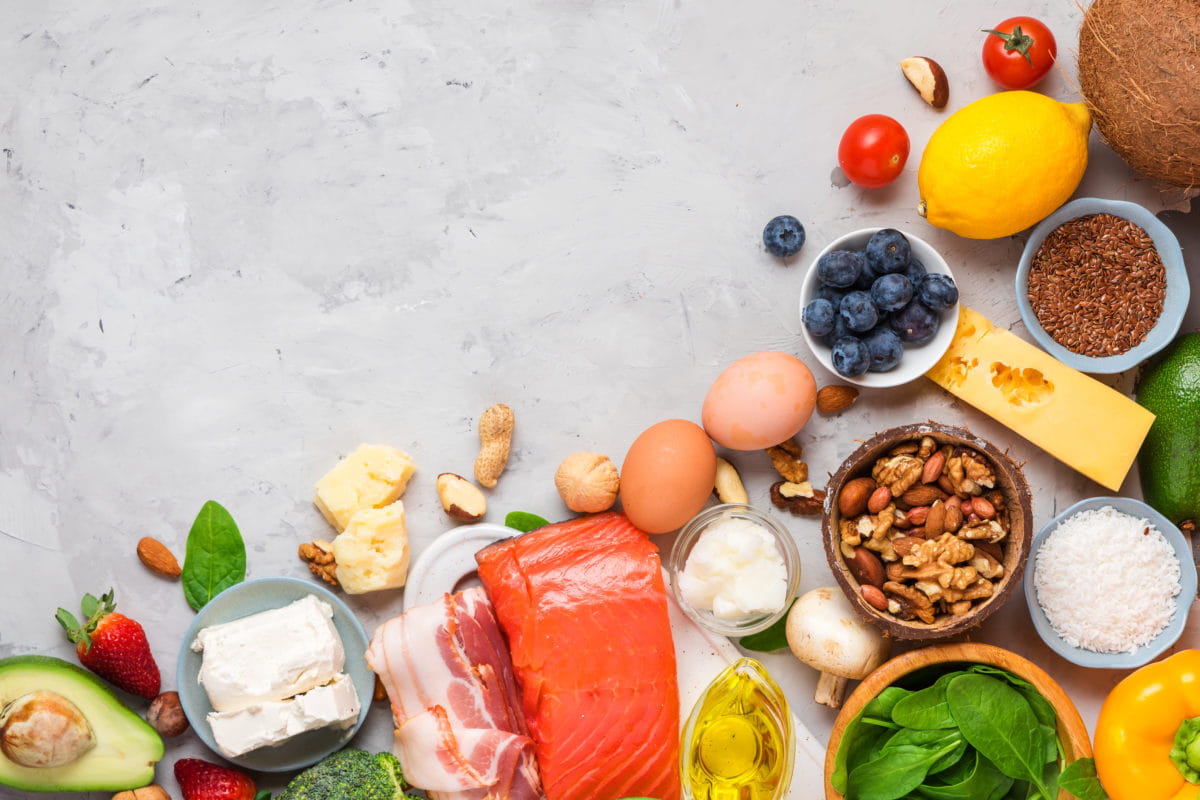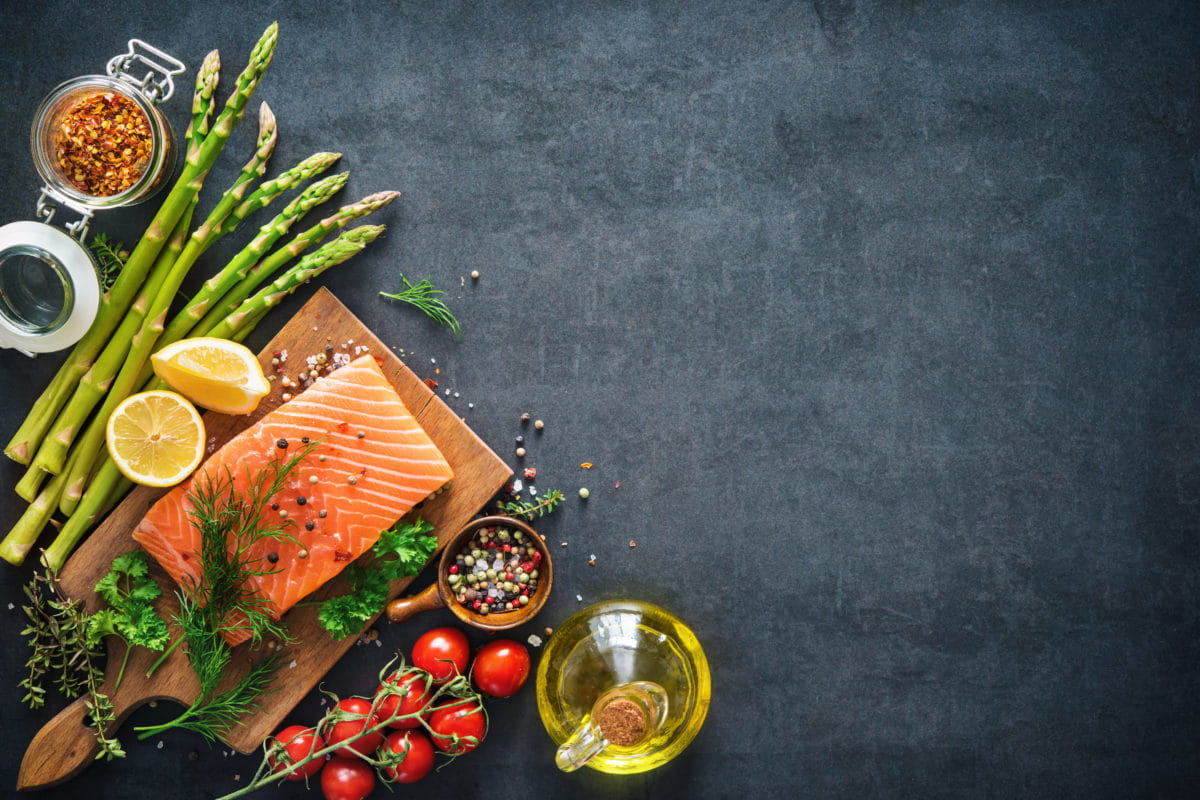What's Next After Keto?
February 13, 2020
Click Here for the full report!
Call it Next Gen Keto, Ketotarian or Keto 2.0. Maybe Slimmed-Down Keto, because that seems to be what this version of the fat-centric ketogenic diet is. As people look for ways to modify a plan that’s based on consuming a significant majority of their calories in fat, a hybrid is seemingly emerging: a fusion of keto and plant-based eating that’s also trending big time as a new decade begins. Bacon and heavy cream while beloved in many ways, is making way for a more balanced approach. As keto makes way for what’s next, let’s see where opportunity is for your products, your brand your growth.

For anyone not familiar with keto, the ketogenic diet is one based on consuming about 75% of calories from fat, 20% from protein and 5 to 10% from carbohydrates. Followers eat this way to burn unwanted fat by making the body rely on fat for energy through a metabolic process known as ketosis.
“What is Keto?” was one of the ten most frequently searched health-related questions on Google in 2019, according to a Google data analysis released in December. In diet-specific Google searches, keto was by far the most searched diet in 2018. In 2019, however, intermittent fasting finished ahead of keto on the list, which includes other diets such as Dr. Sebi, Noom, Golo, Dubrow and Sirtfood. Low-carb is a hallmark of several of the trending eating plans for weight loss.
Like the low-carb, high-fat Atkins diet – and for that matter, plenty of diets before that – the original keto lifestyle isn’t without controversy. Many health professionals have voiced concerns – including those published in the highly-regarded Journal of the American Medical Association -- about high saturated fat levels in certain ingredients that elevate bad cholesterol levels and pose risks to the heart and liver. Other medical experts have cautioned against such a restrictive eating plan.
More recently, a new type of ketogenic eating plan – this Keto 2.0– has garnered interest as a less drastic, more balanced form of the low-carb, higher-fat diet that may find favor with more health professionals.
Essentially, Keto 2.0 is more flexible, replacing unhealthy fats with fats deemed healthier. Instead of casting away vegetables, fruits and forms of fiber, this version incorporates foods that are plant-based and whole grain but still lower-carb. The resulting breakdown, then, moves to a model like 50% fat, 30% protein and 20% carbs.
This new-and-purportedly-improved keto dovetails into the increasingly-embraced holistic approach to health, wellness and eating. This holistic approach was something we covered recently and was cited by Mintel’s 2030 Global Consumer Trends report as a key motivator of current and future consumer behavior. Balance is at the core of this approach, something that Keto 2.0 reflects.
The new, more flexible version of Keto, with allowable fiber, plant-based foods and a focus on healthy fats, is also likely to resonate with consumers driven by concerns about weight loss and strength building.

Those following the Keto 2.0 can’t have their duck fat and eat it, too. For that matter, followers of 2.0, like 1.0, avoid or altogether eliminate sugars, starchy vegetables, fruits high in sugar and many grains. But this next-gen keto, with its new proportion of healthy fats, proteins and carbs, does have room for low-carb food and beverages that also fall within holistic diets, plant-based diets and flexitarian-style eating.
Touted by some health professionals, “keto green” or “keto alkaline” is a 2.0-typeketogenic diet that allows followers to stay in ketosis but also get important pH from alkaline foods. Carbs are limited, intermittent fasting is encouraged, and alkaline foods like leafy green veggies are given a green light.

Food developers can bring flavor to the fore with Keto 2.0-friendly products, spanning snacks, meals, beverages and even desserts (hello, dark, dark chocolate!)
Sated Ready-to-Drink Meal Shakes: These RTD shakes are considered a complete ketogenic meal and are naturally sweetened with a blend of monk fruit, fiber and erythritol.
Avolov Avocado Chips: These snacks are keto, plant-based and clean label, made only with avocados and seasonings, offered in Chili and Lime, Pink Himalayan Salt and Sriracha varieties.
KRAVE Plant-Based Jerky and KRAVE Pork Rinds: The KRAVE brand is offering plant-based and keto snacks to consumers looking for high-protein and low-carb choices. The pork rinds are made with hormone-free, all-natural pork and are available in Chili Lime and Al Pastor Taco. The plant-based jerkey is made with fava beans and peas.
Base Culture Keto Sandwich Bread: A keto 2.0-style bread with a nutty-sweet taste that comes from arrowroot flour and goldenflax.
Lily’s Chocolate: This sugar-free dark chocolate is made with stevia and erythritol to make it sweetly satisfying yet light on carbs. The line includes a Dark Chocolate Sea Salt bar.
Birch Benders Plant Protein Pancake and Waffle Mix: This mix is keto, plant-based, vegan and kosher and made with whole grains.
Banana Joe’s Keto Coconut Cookies are made with a recipe that uses roasted and pressed coconut pieces.

While keto was a diet disrupter that was low in carbs and high in fat (and attention), the next version of Keto 2.0 is a little more balanced. This updated eating plan helps followers achieve ketosis but is more flexible and can include healthy sources of fat along with some whole grains and low-carb plant-based foods like leafy greens and low-sugar fruits. Flavors and seasonings boost the appeal of these low-carb offerings, in masking or improving the healthful but not-quite-pleasant taste of some proteins and nutritious ingredients.
Click here for the full report!
What does true partnership look like? You deserve a flavor partner ready to turn these trends into the tangible.
Let FONA’s market insight and research experts get to work for you. Translate these trends into bold new ideas for your brand. Increase market share and get to your “what’s next.” Our technical flavor and product development experts are also at your service to help meet the labeling and flavor profile needs for your products to capitalize on this consumer trend. Let’s mesh the complexities of flavor with your brand development, technical requirements and regulatory needs to deliver a complete taste solution.
From concept to manufacturing, we’re here for you — every step of the way. Contact our sales service department at 630.578.8600 to request a flavor sample or chat us up at www.fona.com/chat
Sources in full report
Call it Next Gen Keto, Ketotarian or Keto 2.0. Maybe Slimmed-Down Keto, because that seems to be what this version of the fat-centric ketogenic diet is. As people look for ways to modify a plan that’s based on consuming a significant majority of their calories in fat, a hybrid is seemingly emerging: a fusion of keto and plant-based eating that’s also trending big time as a new decade begins. Bacon and heavy cream while beloved in many ways, is making way for a more balanced approach. As keto makes way for what’s next, let’s see where opportunity is for your products, your brand your growth.

The Keys to Keto
For anyone not familiar with keto, the ketogenic diet is one based on consuming about 75% of calories from fat, 20% from protein and 5 to 10% from carbohydrates. Followers eat this way to burn unwanted fat by making the body rely on fat for energy through a metabolic process known as ketosis.
Fading Interest
“What is Keto?” was one of the ten most frequently searched health-related questions on Google in 2019, according to a Google data analysis released in December. In diet-specific Google searches, keto was by far the most searched diet in 2018. In 2019, however, intermittent fasting finished ahead of keto on the list, which includes other diets such as Dr. Sebi, Noom, Golo, Dubrow and Sirtfood. Low-carb is a hallmark of several of the trending eating plans for weight loss.
Cautions About Keto
Like the low-carb, high-fat Atkins diet – and for that matter, plenty of diets before that – the original keto lifestyle isn’t without controversy. Many health professionals have voiced concerns – including those published in the highly-regarded Journal of the American Medical Association -- about high saturated fat levels in certain ingredients that elevate bad cholesterol levels and pose risks to the heart and liver. Other medical experts have cautioned against such a restrictive eating plan.
What’s Next
More recently, a new type of ketogenic eating plan – this Keto 2.0– has garnered interest as a less drastic, more balanced form of the low-carb, higher-fat diet that may find favor with more health professionals.
Essentially, Keto 2.0 is more flexible, replacing unhealthy fats with fats deemed healthier. Instead of casting away vegetables, fruits and forms of fiber, this version incorporates foods that are plant-based and whole grain but still lower-carb. The resulting breakdown, then, moves to a model like 50% fat, 30% protein and 20% carbs.
“’Healthy’ may be a stretch, but compared to the standard keto diet, Keto 2.0 is better, and much closer to a traditional Mediterranean Diet, long considered a gold standard for weight loss and health.” Cynthia Sass, MPH, RD , as quoted in Health.com, Dec. 2019.
Part of the Whole
This new-and-purportedly-improved keto dovetails into the increasingly-embraced holistic approach to health, wellness and eating. This holistic approach was something we covered recently and was cited by Mintel’s 2030 Global Consumer Trends report as a key motivator of current and future consumer behavior. Balance is at the core of this approach, something that Keto 2.0 reflects.
The new, more flexible version of Keto, with allowable fiber, plant-based foods and a focus on healthy fats, is also likely to resonate with consumers driven by concerns about weight loss and strength building.

That’s rich: Keto 2.0 Opportunities for Food and Beverage Developers
Those following the Keto 2.0 can’t have their duck fat and eat it, too. For that matter, followers of 2.0, like 1.0, avoid or altogether eliminate sugars, starchy vegetables, fruits high in sugar and many grains. But this next-gen keto, with its new proportion of healthy fats, proteins and carbs, does have room for low-carb food and beverages that also fall within holistic diets, plant-based diets and flexitarian-style eating.
Low-Carb Plant Foods
- Leafy green vegetables like spinach, kale, collard greens and chard
- Low-carb nuts
- Lower-sugar fruits, like raspberries and strawberries
- Vegetables lower in starch like asparagus and cauliflower
- Seeds, such as flax, chia and hemp
Low-Carb, Lower-Fat Proteins
- Spirulina
- Nuts
- Tempah
- Seeds
- Some plant-based protein powders
Plant-Based Fats
- Coconut oil
- Avocado oil
- Olive oil
- MCT oil
- Nuts
- Seeds
"There is clearly not just one way to do keto. Many people assume that to do it, you have to eat nothing but bacon, butter, steak, and other foods high in animal-based saturated fats, but my favorites are olive oil, nuts, avocado, and fatty fish such as salmon." Cardiologist Ethan Weiss, M.D., quoted in MindBodyGreen.com, December 2019.
Acidic vs. Alkaline
Touted by some health professionals, “keto green” or “keto alkaline” is a 2.0-typeketogenic diet that allows followers to stay in ketosis but also get important pH from alkaline foods. Carbs are limited, intermittent fasting is encouraged, and alkaline foods like leafy green veggies are given a green light.

Keto 2.0: Now in the Marketplace
Food developers can bring flavor to the fore with Keto 2.0-friendly products, spanning snacks, meals, beverages and even desserts (hello, dark, dark chocolate!)
Products of Note:
Sated Ready-to-Drink Meal Shakes: These RTD shakes are considered a complete ketogenic meal and are naturally sweetened with a blend of monk fruit, fiber and erythritol.
Avolov Avocado Chips: These snacks are keto, plant-based and clean label, made only with avocados and seasonings, offered in Chili and Lime, Pink Himalayan Salt and Sriracha varieties.
KRAVE Plant-Based Jerky and KRAVE Pork Rinds: The KRAVE brand is offering plant-based and keto snacks to consumers looking for high-protein and low-carb choices. The pork rinds are made with hormone-free, all-natural pork and are available in Chili Lime and Al Pastor Taco. The plant-based jerkey is made with fava beans and peas.
Base Culture Keto Sandwich Bread: A keto 2.0-style bread with a nutty-sweet taste that comes from arrowroot flour and goldenflax.
Lily’s Chocolate: This sugar-free dark chocolate is made with stevia and erythritol to make it sweetly satisfying yet light on carbs. The line includes a Dark Chocolate Sea Salt bar.
Birch Benders Plant Protein Pancake and Waffle Mix: This mix is keto, plant-based, vegan and kosher and made with whole grains.
Banana Joe’s Keto Coconut Cookies are made with a recipe that uses roasted and pressed coconut pieces.

The Takeaways
While keto was a diet disrupter that was low in carbs and high in fat (and attention), the next version of Keto 2.0 is a little more balanced. This updated eating plan helps followers achieve ketosis but is more flexible and can include healthy sources of fat along with some whole grains and low-carb plant-based foods like leafy greens and low-sugar fruits. Flavors and seasonings boost the appeal of these low-carb offerings, in masking or improving the healthful but not-quite-pleasant taste of some proteins and nutritious ingredients.
Click here for the full report!
Order your free flavor sample here
You deserve more. Let’s get started.
What does true partnership look like? You deserve a flavor partner ready to turn these trends into the tangible.
Let FONA’s market insight and research experts get to work for you. Translate these trends into bold new ideas for your brand. Increase market share and get to your “what’s next.” Our technical flavor and product development experts are also at your service to help meet the labeling and flavor profile needs for your products to capitalize on this consumer trend. Let’s mesh the complexities of flavor with your brand development, technical requirements and regulatory needs to deliver a complete taste solution.
From concept to manufacturing, we’re here for you — every step of the way. Contact our sales service department at 630.578.8600 to request a flavor sample or chat us up at www.fona.com/chat
Sources in full report



